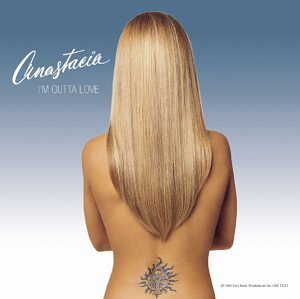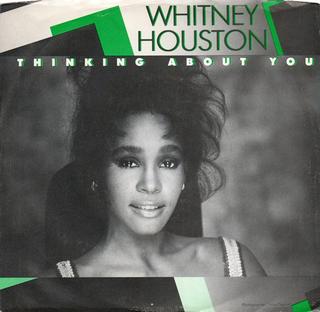Synth-pop is a genre of new wave and pop music that first became prominent in the late 1970s and features the synthesizer as the dominant musical instrument. It was prefigured in the 1960s and early 1970s by the use of synthesizers in progressive rock, electronic, art rock, disco, and particularly the Krautrock of bands like Kraftwerk. It arose as a distinct genre in Japan and the United Kingdom in the post-punk era as part of the new wave movement of the late 1970s to the mid-1980s.

The Gap Band was an American R&B and funk band that rose to fame during the 1970s and 1980s. The band consisted of three brothers: Charlie, Ronnie, and Robert Wilson, along with other members; it was named after streets in the historic Greenwood neighborhood in the brothers' hometown of Tulsa, Oklahoma.
B.T. Express was an American funk/disco group that had a number of successful songs during the 1970s.

Evelyn "Champagne" King is an American singer, songwriter, and record producer. She is best known for her hit disco single "Shame", which was released in 1977 during the height of disco's popularity. King had other hits from the early through the mid–1980s including; "I'm in Love" (1981), "Love Come Down" (1982) and "Your Personal Touch" (1985).

"Number 1" is a song by English electronic music duo Goldfrapp from their third studio album, Supernature (2005). Written and produced by Alison Goldfrapp and Will Gregory, the song features a synthesiser and bass guitar arrangement and was written about the importance and meaningfulness that somebody shares with another, despite that it might not necessarily last.

"R&B Junkie" is a song by American singer-songwriter Janet Jackson from her eighth studio album, Damita Jo (2004). Written by Jackson, James Harris III, Terry Lewis, Tony "Prof T" Tolbert, Michael Jones and Nicholas Trevisick, the track was released as a promotional single in 2004 by Virgin Records. "R&B Junkie" is an upbeat song which has a "retro" feel consisting of 1980s soul, R&B, funk, dance-pop and synths, while it samples Evelyn King's 1981 song "I'm in Love"; it has "oh-oh-ohs" throughout the verses.

"I'm Not in Love" is a song by British group 10cc, written by band members Eric Stewart and Graham Gouldman. It is known for its innovative and distinctive backing track, composed mostly of the band's multitracked vocals. Released in the UK in May 1975 as the second single from the band's third album, The Original Soundtrack, it became the second of the group's three number-one singles in the UK between 1973 and 1978, topping the UK Singles Chart for two weeks. "I'm Not in Love" became the band's breakthrough hit outside the United Kingdom, topping the charts in Canada and the Republic of Ireland as well as peaking within the top ten of the charts in several other countries, including Australia, Germany, New Zealand, Norway and the United States.

"I'm Outta Love" is the debut single of American singer Anastacia. Written by Anastacia, Sam Watters, and Louis Biancaniello and produced by the latter two, it was released on February 29, 2000, as the lead single from her debut album, Not That Kind (2000). The song became a major hit in Europe and Australia, reaching number one in Wallonia, Australia and New Zealand; it was the most successful song of 2000 in the latter two regions. It additionally reached the top five in several others, including France, Ireland, Italy, the Netherlands, and Switzerland.

"Love to Hate You" is a song by English synth-pop duo Erasure, released in September 1991 as the second single from their fifth studio album, Chorus (1991). Written by band members Vince Clarke and Andy Bell, it is an electronic dance track inspired by disco music. The synthesizer melody in the chorus is an interpolation of the string break from American singer Gloria Gaynor's disco-era classic "I Will Survive". The duo also recorded a Spanish version of the song, called "Amor y Odio", and one in Italian called "Amo Odiarti". The single was released by Mute Records in the UK and Sire Records in the US. It peaked at number four on the UK Singles Chart and became a top-10 hit in Austria, Denmark, Finland, Greece, Ireland, and Sweden.

"You Send Me" is a song written and originally recorded by American singer Sam Cooke, released as a single in 1957 by Keen Records. Produced by Bumps Blackwell and arranged and conducted by René Hall. The song, Cooke's debut single, was a massive commercial success, becoming a No. 1 hit on both Billboard's Rhythm & Blues Records chart and the Billboard Hot 100.

"Love Come Down" is a song written by American musician Kashif. It was recorded by American singer Evelyn King for her fifth album Get Loose (1982). "Love Come Down" was released in July 1982 by RCA Records as the lead single from Get Loose. In the United States, it reached number one on the Billboard Black Singles and Hot Dance/Disco charts and number 17 on the Billboard Hot 100. It also cracked the top 20 on the charts in several other countries as well.
Post-disco is a term to describe an aftermath in popular music history circa 1978–1990, imprecisely beginning with an unprecedented backlash against disco music in the United States, leading to civil unrest and a riot in Chicago known as the Disco Demolition Night on July 12, 1979, and indistinctly ending with the mainstream appearance of new wave in 1980. During its dying stage, disco displayed an increasingly electronic character that soon served as a stepping stone to new wave, old-school hip hop, Euro disco, and was succeeded by an underground club music called hi-NRG, which was its direct continuation.

Kashif Saleem was an American multi-instrumentalist, singer, songwriter, record producer, artist, composer, author, director and educator from New York City. As a teenager, Kashif joined the funk group B. T. Express. He studied Islam and changed his name from Michael Jones to Kashif. He later signed with Arista Records enjoying success as a solo artist.

Get Loose is the fifth studio album from American singer Evelyn King, released by RCA Records in August 1982. It was produced by Morrie Brown with Kashif and Paul Lawrence Jones III as assistant producers.

I'm in Love is the fourth album by R&B singer Evelyn "Champagne" King, released on RCA Records in 1981. It was produced by Morrie Brown, Willie Lester, Rodney Brown, Kashif, and Lawrence Jones.

Face to Face is the sixth album released by R&B singer Evelyn "Champagne" King on RCA Records in 1983. It was produced by André Cymone, Leon Sylvers III, Foster Sylvers, and Joey Gallo.

"Thinking About You" is the fifth single by American singer Whitney Houston. It was written by Kashif Saleem and La Forrest "La La" Cope for Houston's debut studio album Whitney Houston (1985), while production was helmed by the former, released in October 1985. Even though it was not promoted as a single to top 40 radio stations, "Thinking About You" became a top 10 hit on the Hot Black Singles chart in the United States. It later appeared as the B-side to Houston's 1986 single, "Greatest Love of All".
"If You Want My Lovin'" is a song released by American singer Evelyn "Champagne" King. Released on April 3, 1981, The song appears on the album I'm in Love. The single version of "If You Want My Lovin'" was the follow-up to her charting single "I'm in Love," but less successful.

Kashif is the self-titled debut album by American singer Kashif. Produced by Kashif and Morrie Brown, it was released by Arista Records on February 22, 1983, in the United States, following his departure from the funk/disco group B. T. Express. The album reached number ten on the US Top R&B/Hip-Hop Albums chart and spawned the top five single "I Just Gotta Have You ." Kashif also includes the singles "Stone Love", "Help Yourself to My Love" and "Say Something Love". The album was digitally remastered by Funky Town Grooves in 2012 and includes five additional tracks.

"I'm Gonna Get You" is a song by English electronic music group Bizarre Inc, featuring collaborative lead vocals by English singer Angie Brown. It was released in September 1992 as the second single from the group's second studio album, Energique (1992). It contains lyrics from the Jocelyn Brown song "Love's Gonna Get You", and a sample from "Brass Disk" by Dupree. "I'm Gonna Get You" proved to be a hit on the UK Singles Chart in October 1992, peaking at number three and later being certified silver by the British Phonographic Industry for sales in excess of 200,000 copies, and it also reached the number-three position in the Netherlands in January 1993. The track failed to reach the top 40 on the US Billboard Hot 100, but did top the Billboard Hot Dance Club Songs chart as well as the Canadian RPM Dance/Urban chart.
















